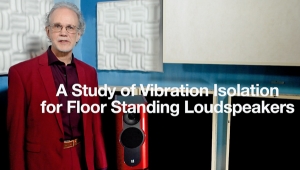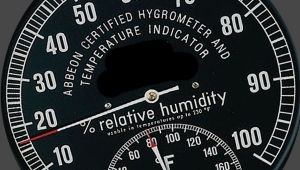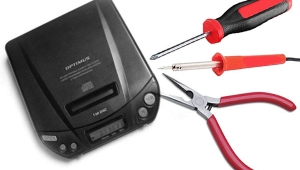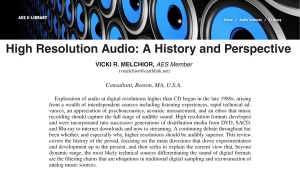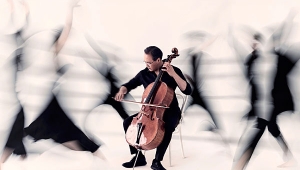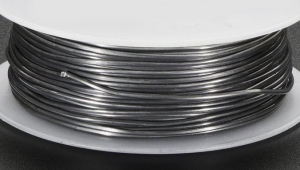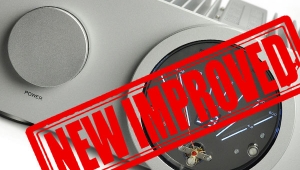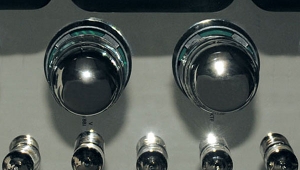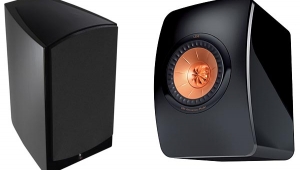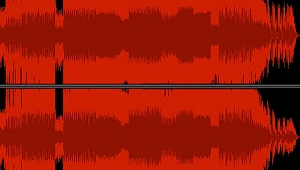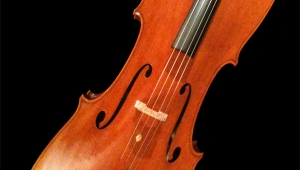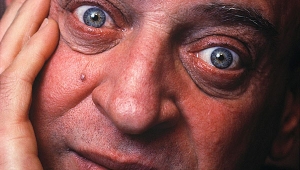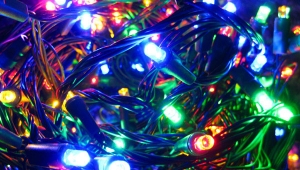| Columns Retired Columns & Blogs |
Scientists vs Audiophiles 1999 More Letters
Letters in response appeared in September, October, November, and December 1999:
Scientists vs audiophiles
Editor: In George Reisch's "Undercurrents" (Stereophile, July 1999) he asserts that the "prejudices" of the engineers and scientists who bash audiophiles are based on theoretical knowledge as opposed to the firsthand experience of listening to high-end systems.
It is my somewhat educated guess that if you took most of these dissenting scientists and engineers and sat them down in front of a good audio system, they would not be able to immediately hear exactly how or why it was good. It takes years of educating your ear to hear the fine differences in audio systems. Most of them would probably have difficulty telling the difference between cables. Remember back to when you first began trying to distinguish the differences between far more dramatic components like speakers. I think they're defensive and frustrated, and, rather than admitting that something might exist that they're missing, they dismiss the fact that anything exists at all, and say that we're fools who are imagining it.
It reminds me very much of people who go to museums and have no idea why Picasso, Pollock, or Rothko are good painters. They're seeing exactly what we're seeing, but they're seeing it quite differently. Many of these people (perhaps the educated ones are the most defensive) claim that the rest of us must be fools for valuing this art so highly. We have been hoodwinked. We cannot see that the emperor has no clothes on.
Some of these left-brain guys may not have very developed right brains. They may never be able to see why Picasso is a great painter or hear why a high-end audio system is worth the extra price we pay for it. Some people who are incapable of love deny that the rest of us might actually be able to feel it. You probably won't convince most of them. However, I'm not saying you should quit trying. From time to time it is a wonderful experience to introduce someone to a new aesthetic experience.—David Del Bourgo, Woodland Hills, Ddelbourgo@aol.com
The great debate redux
Editor: George Reisch ("Undercurrents," July 1999) misrepresents the positions of the pros in the "pros vs audiophiles" debates. There are plenty of pros who are also audiophiles, in the sense that they have high-quality reproduction systems to which they listen at home. And most of the pros I know are experimentalists first and foremost.
However...just because pros are experimentalists doesn't mean that they're gullible. As far as I'm concerned, the audiophile emperor is not only naked, he is also sporting a huge erection. Audiophiles (in Reisch's sense) dance around two crucial aspects of experimentalism: blind tests and input/output null tests.
When blind tests wipe out "enormous" differences ("experimentally" determined) between components, audiophiles claim "performance anxiety" and insist that sighted tests are vastly more sensitive than blind tests. These assertions contradict the experiments of the most experienced researchers in the field—those who have discovered the basic laws of psychoacoustics by careful observation, and those who have applied those laws to make lossy data-compression systems like MPEG AAC. These hugely sophisticated systems cannot run on bullshit—they have to work. The reason that they do work is that they were designed and verified on the basis of extremely careful and sensitive double-blind tests, most often of the A/B/C hidden-reference persuasion. In these tests subjects are allowed as much time as they want, are allowed to repeat program material as many times as they want, and are allowed to loop critical segments of program material.
The only differences between these and sighted tests are that neither the subjects nor the researchers know the identity of the material being tested, and the subject is alone in the room while the tests are occurring, so he/she is not affected by other subjects' opinions. The researchers who have created and verified these systems universally agree that, without these conditions, the experiments give worthless results.
In other words, experiment leads professional researchers in the audio field to the conclusion that blind tests are far more reliable and sensitive than sighted tests. If you have not read the professional literature describing the development and testing of lossy digital compression systems, you should do so forthwith. You will find it to be an eye-opener.
The next issue is the input/output null test, first published by Peter Walker (of Quad electrostatic loudspeaker fame) 30-odd years ago. This test deals with the question of test tones vs program material. Audiophiles properly assert that test tones cannot predict the extra spectral products introduced into program material by system nonlinearities, because superposition does not hold in nonlinear systems. So Walker added the out-of-polarity output of his power amplifiers to the input, introducing enough frequency-dependent attenuation of the output (by means of a very linear filter) to null most of the effects of linear distortion in the amplifier. The remaining residual is the nonlinear distortion produced by the amplifier with the actual program material. If this residual is below the masked threshold of hearing, it will not be heard.
I have done this test with a number of "cheap" op-amps (like the NE5532) and have obtained midrange nulls on the order of -125dB when the device being tested is operated in inverted mode with a gain of -1. I observe the residual with a dual-channel FFT analyzer, applying the input signal to the other analyzer input. This allows me to observe not only the spectrum of the residual, but also the coherence function, which estimates, as a function of frequency, whether the residual error represents linear distortion (ie, frequency-response errors), nonlinear distortion, or noise. Even at 20kHz, I get nulls of better than 90dB using a simple 6dB/octave phase-compensation network, and the coherence function indicates that this is almost entirely linear distortion that is not adequately nulled by a 6dB/octave filter.
- Log in or register to post comments
